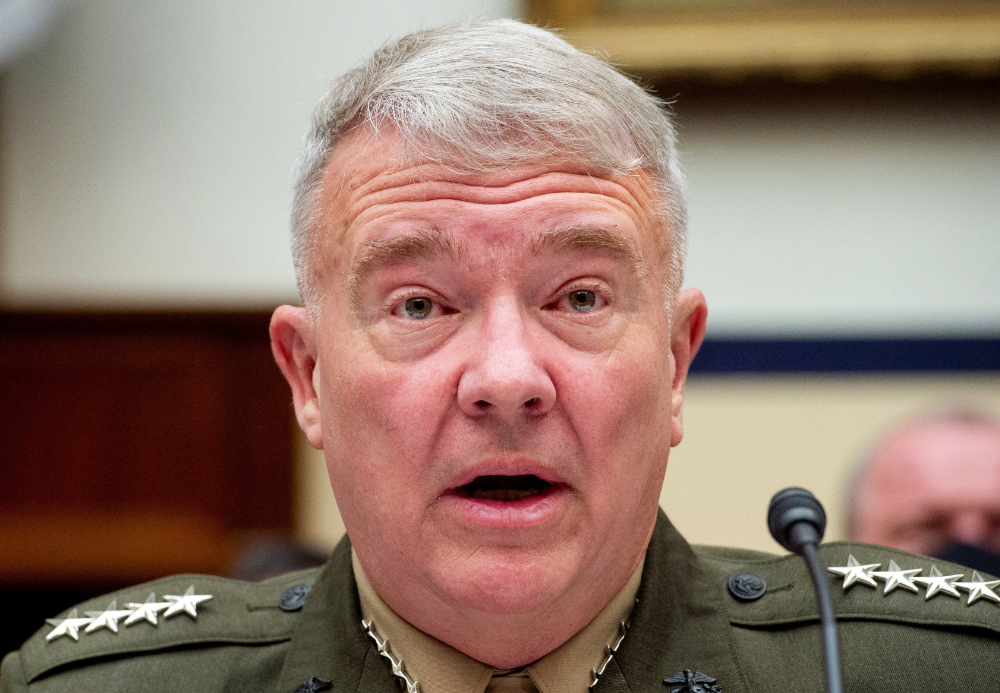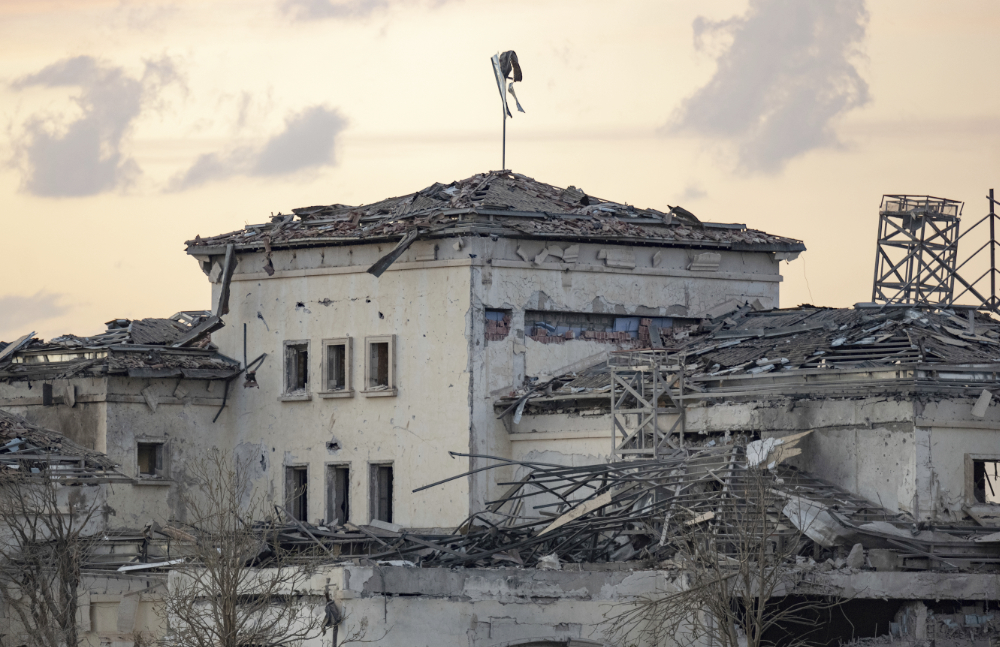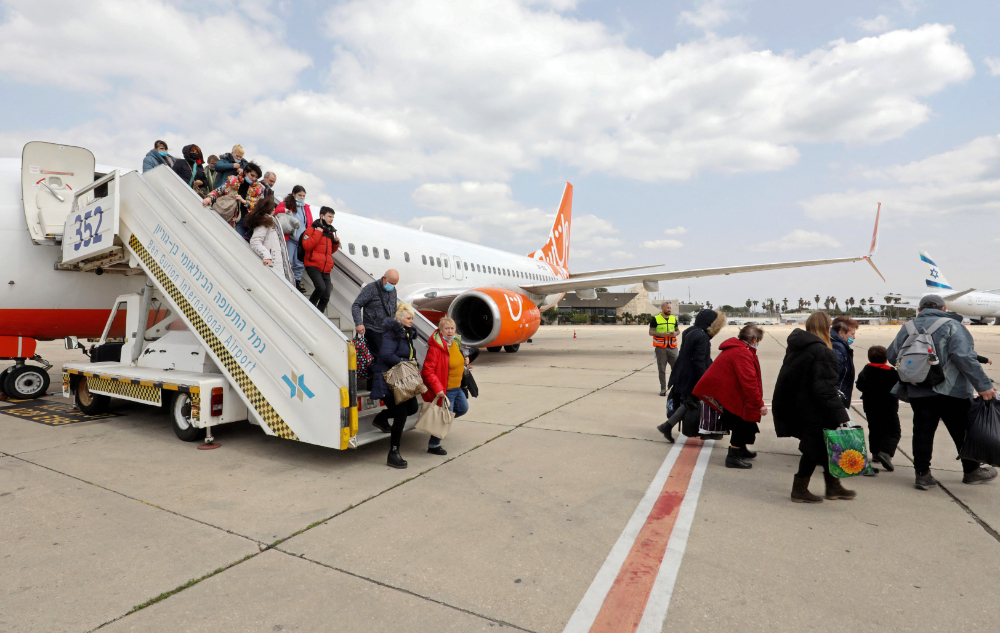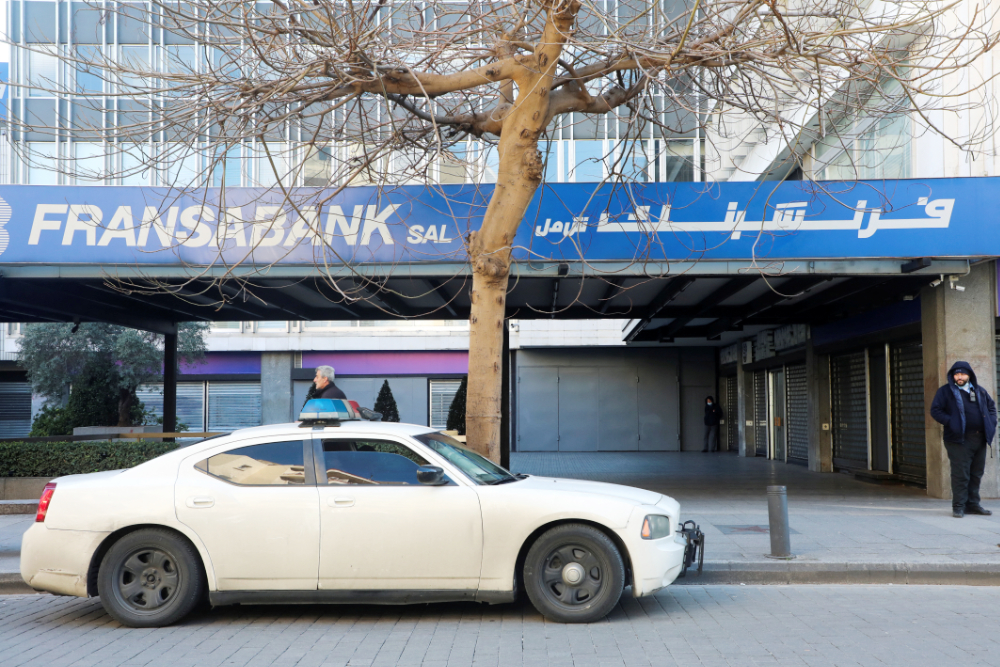General: Iran, Israel missile strikes put US troops at risk
WASHINGTON: The exchange of missile strikes by Iran and Israel in Iraq and Syria puts US forces at risk, the top US commander for the Middle East said, just days after an Iranian missile barrage struck near the US Consulate complex in northern Iraq.
Marine Gen. Frank McKenzie told Pentagon reporters that over the past six months Iran has attacked US forces and facilities a number of times, but “very good action on the part of commanders on the ground” had thwarted any US casualties.
“Had US casualties occurred, I think we might be in a very different place right now,” said McKenzie.
McKenzie and other US officials said this week the missile strikes on Sunday that hit close to the consulate were not aimed at the US And Iran’s powerful Revolutionary Guard said on its website that it had attacked what it described as an Israeli spy center in Irbil.
The attack came several days after Iran said it would retaliate for an Israeli strike near Damascus that killed two members of its Revolutionary Guard.
“I think it’s obvious that Israel is going to take steps to defend itself when it’s confronted with with Iranian actions. And of course, Iran is dedicated to the destruction of Israel,” McKenzie said.
I think it’s obvious that Israel is going to take steps to defend itself when it’s confronted with with Iranian actions.
Marine Gen. Frank McKenzie, Top US commander for the Middle East
“I do worry about these exchanges between Iran and Israel, because many times our forces are at risk, whether in Iraq or in Syria. So that, in fact, does concern me.”
McKenzie, who is retiring after about three years as head of US Central Command, was speaking at what was expected to be his final press briefing. He said that as he prepares to turn over the job to incoming Army Gen. Erik Kurilla, his message to his successor is that Iran continues to be his biggest challenge.
“My central problem in my three years of command was Iran,” said McKenzie, who also oversaw the chaotic withdrawal from Afghanistan and commando raids to kill Daesh leaders.
“There were other problems, other huge problems, but the headquarters as a whole … focused on the Iranian problem and everything attendant to that.”
The US presence in Iraq has long been a flash point for Tehran, but tensions spiked after a January 2020 US drone strike near the Baghdad airport killed a top Iranian general. In retaliation, Iran launched a barrage of missiles at Al-Asad air base, where US troops were stationed. More than 100 service members suffered traumatic brain injuries in the blasts.
More recently, Iranian proxies are believed responsible for an assassination attempt late last year on Iraq’s Prime Minister Mustafa Al-Kadhimi. And officials have said they believe Iran was behind the October drone attack at the military outpost in southern Syria where American troops are based. No US personnel were killed or injured in the attack.
Last year, US forces in Iraq shifted to a non-combat role, but Iran and its proxies still want all American troops to leave the country.
McKenzie said the Iranian leaders believe that they can launch a certain level of attacks against the US without affecting the ongoing negotiations over Tehran’s nuclear program.
Diplomats trying to salvage the 2015 Iran nuclear deal appear to be near the cusp of an agreement that would bring the US back into the accord and bring Iran back into compliance with limits on its nuclear program.
Congressional opponents of the deal peppered McKenzie with questions this week about the impact of an agreement on Iranian aggression and whether sanctions relief will only provide Iran funding for other malign behavior.
McKenzie said the US has gotten better at countering potential strikes by Iranian drones and other defensive measures, which contributed to the lack of American casualties. But he and others have noted that the Iranian ballistic missile strikes have gotten more precise.
“We don’t want Iran to have a nuclear weapon, and the best way to get to that is probably through a negotiated solution,” he said, adding that such a deal won’t likely solve other problems, such as Iranian conventional attacks in the region.
“I don’t think anybody in the United States government is blind to that fact, but … if you can take nuclear weapons off the table, that’s a powerful capability that you don’t have to worry about.”
Once that is done, he said, then the US could move on and deal with other problems, including Iran’s increasing ballistic missile and drone threats.
“What you’d like to do is negotiate that, but if you can negotiate that, that’s where US Central Command comes in. It’s our job to demonstrate to Iran the concept of deterrence — that the things they want to pursue are too painful for them to achieve. We work at that every day.”

Israeli forces kill two Palestinians in West Bank violenceIran disputes UK claims over ‘safeguards’ for hostage cash




